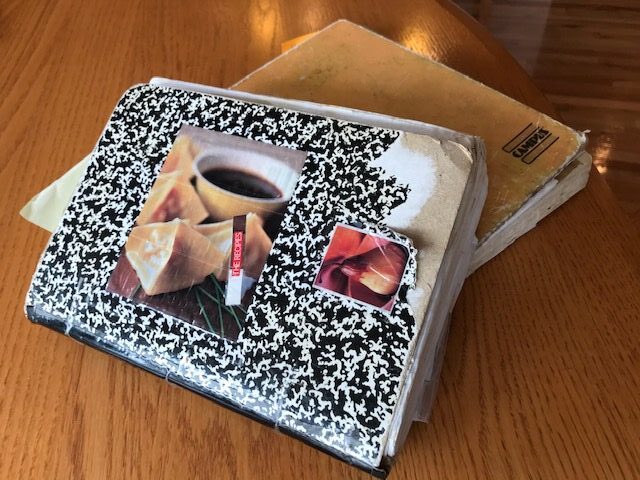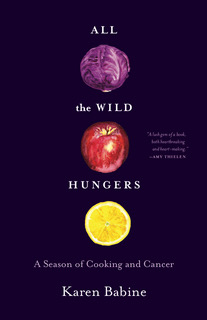In the cupboard beside my oven, I keep two time-worn notebooks full of recipes gathered from friends, learned from my mother, or photocopied from borrowed or discarded books. I used to feel sheepish about these notebooks and rarely admitted to keeping them. They felt overly domestic: too reminiscent of the suburban housewife I never wanted to be mistaken for.
But now that I’ve kept them for over 20 years, and now that I’ve almost run out of pages in the second book, and now that we’re living in plague times, I’ve come to see them differently. The books tell the history of our life as a family. Of the everyday that revolves around the kitchen, the cycles of seasons, sustenance, and celebrations.
I’ve come to see the notebooks as memory.
Like many of you out there, I’m baking more than ever these days: bread, cake, cupcakes, pizza . . . you name it, I’m making it. Armed with my apron, I stare death down. I beat it back and coax yeast and flour to life instead. By feeding the people I love and by keeping them alive, I keep the plague at bay. At least, that’s my hope.
Maybe baking is keeping you and yours alive too.
Dear Reader, if you’re out there: take this recipe as a gift. It’s a simple, sensible (i.e., the best kind of) recipe passed on to me by my Aunt Ruth more than a quarter-century ago. Not a blood relative, but family nonetheless, beloved Aunt Ruth died eight years ago. This was not her most significant legacy and I suspect that she may have been surprised that I bake and remember her by this unassuming loaf, but life’s in the small things. That’s where love resides.
If you bake Aunt Ruth’s Banana bread and like it, please remember her and toast her with a cup of tea. Ruth was whip-smart, funny, and used to call her daughter (my dear friend Anna) “Bananes.” She had beautiful curly black hair and loved her husband with a tenderness and devotion that most can only aspire to. She was also a great cook.
- Aunt Ruth’s Banana Bread
- 1) Mash 3 bananas (I like to put over-ripe bananas in the freezer and pull them out for this recipe)
- 2) Mix bananas with:
- 1/4 tsp. baking soda
- 1/3 cup oil
- 1 egg
- 1/3 cup sugar
- 1 1/2 cup flour
- pinch of salt
- 3) Bake in a loaf pan for about 55 minutes @ 350F.
- You’ll know it’s ready when a skewer comes out clean.
[Photo: The Notebooks, by Julija Šukys]




